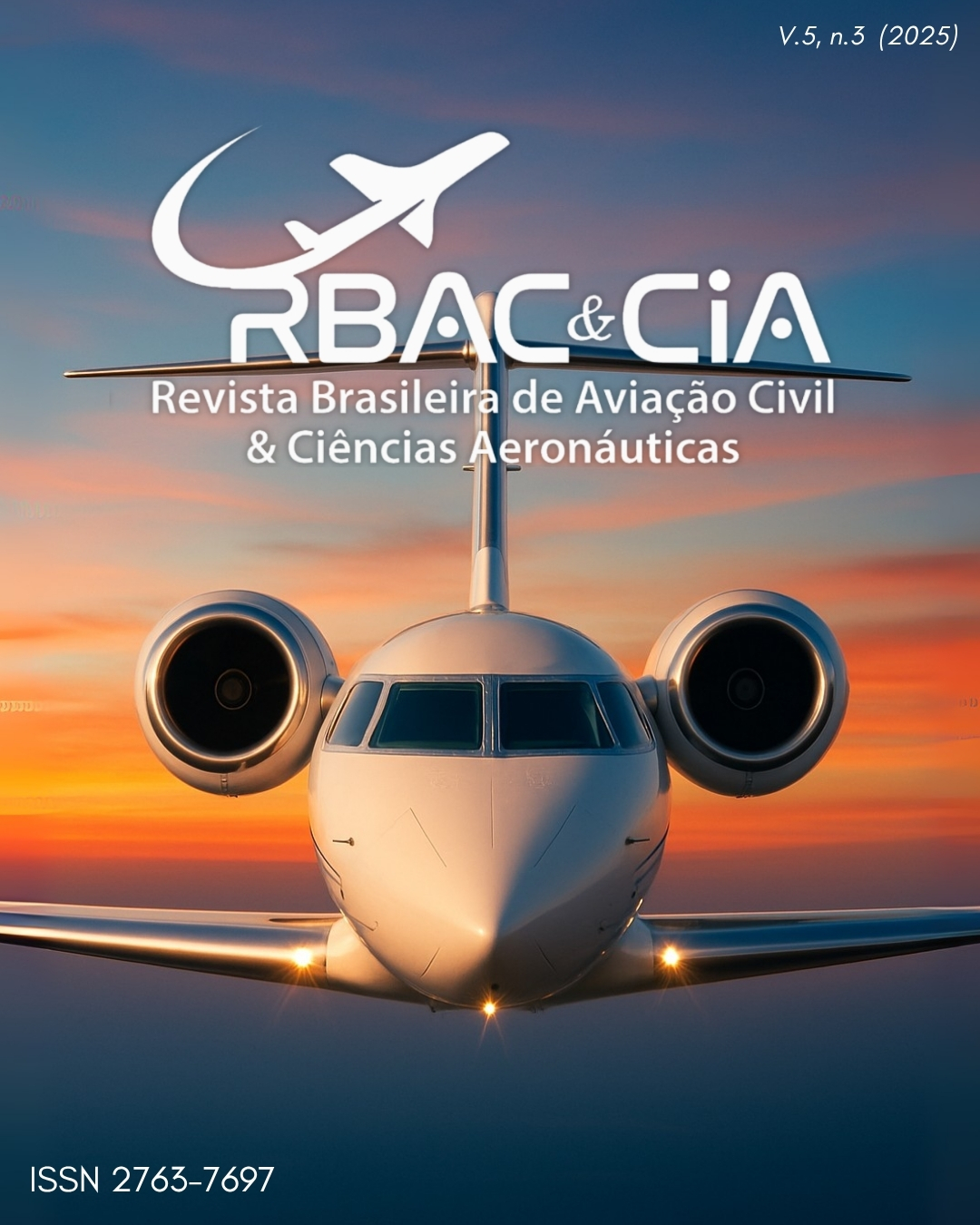SUSTENTABILIDADE NAS MAIORES COMPANHIAS AÉREAS BRASILEIRAS: POLÍTICAS E DESAFIOS AMBIENTAIS SUSTAINABILITY IN THE LARGEST BRAZILIAN AIRLINES: ENVIRONMENTAL POLICIES AND CHALLENGES
Conteúdo do artigo principal
Resumo
Este trabalho analisa as políticas ambientais implementadas pelas três maiores companhias aéreas do Brasil — Azul Linhas Aéreas, LATAM Airlines e GOL Linhas Aéreas — com o objetivo de avaliar sua eficácia na redução do impacto ambiental das operações. A metodologia científica é aplicada por meio de uma análise bibliográfica descritiva, detalhada e qualitativa, baseada nos princípios de sustentabilidade, gestão ambiental, responsabilidade social empresarial e legislação ambiental. A pesquisa identifica as principais estratégias adotadas por essas empresas, como a renovação da frota para aeronaves mais eficientes, o uso de biocombustíveis, e a implementação de sistemas de gestão ambiental certificados. Os resultados mostram que, embora cada companhia tenha seguido abordagens próprias, todas demonstraram avanços significativos em suas práticas de sustentabilidade. A Azul se destacou pela reciclagem de resíduos com o programa ReciclAzul, a LATAM pelo pioneirismo em investimentos para modernizar a frota e incluir aeronaves mais sustentáveis, e a Gol pela adoção de soluções tecnológicas voltadas à economia de combustível e o programa de bioquerosene. Apesar dos progressos, o estudo conclui que há espaço para melhorias, especialmente na ampliação e fortalecimento das práticas ambientais em setores específicos, como o setor aeroportuário que possui problemas ambientais gerados por equipamentos em solo, precisando de mais atenção em estudos futuros. Por isso a continuidade dessas iniciativas é essencial para garantir um futuro mais sustentável para a aviação no Brasil.
Palavras-chave: aviação; sustentabilidade; políticas ambientais; companhias aéreas.
ABSTRACT
This study analyses the environmental policies implemented by the three largest airlines in Brazil — Azul Linhas Aéreas, LATAM Airlines, and GOL Linhas Aéreas — with the aim of evaluating their effectiveness in reducing the environmental impact of their operations. The scientific methodology is applied through a descriptive, detailed, and qualitative bibliographic analysis, based on the principles of sustainability, environmental management, corporate social responsibility, and environmental legislation. The research identifies the main strategies adopted by these companies, such as fleet renewal with more efficient aircraft, the use of biofuels, and the implementation of certified environmental management systems. The results show that, although each airline has followed its own approach, all have made significant progress in their sustainability practices. Azul stood out for its waste recycling program, ReciclAzul; LATAM for its pioneering investments in fleet modernization and adoption of more sustainable aircraft; and GOL for its adoption of technological solutions focused on fuel savings and its bio-kerosene program. Despite the progress made, the study concludes that there is still room for improvement, especially in expanding and strengthening environmental practices in specific sectors, such as the airport sector, which faces environmental issues caused by ground support equipment and requires further attention in future studies. Therefore, the continuation of these initiatives is essential to ensure a more sustainable future for aviation in Brazil.
Keywords: aviation; sustainability; environmental policies; airlines.
Downloads
Detalhes do artigo

Este trabalho está licenciado sob uma licença Creative Commons Attribution 4.0 International License.
